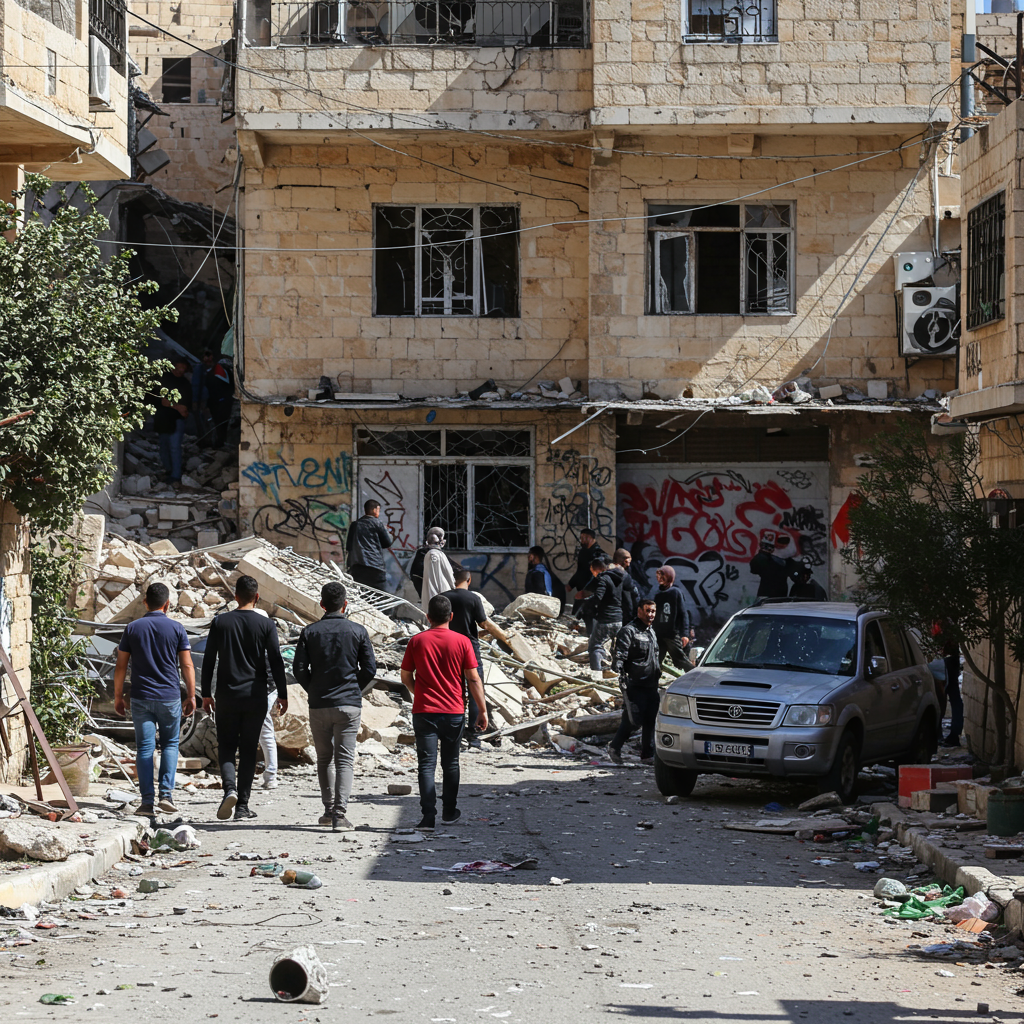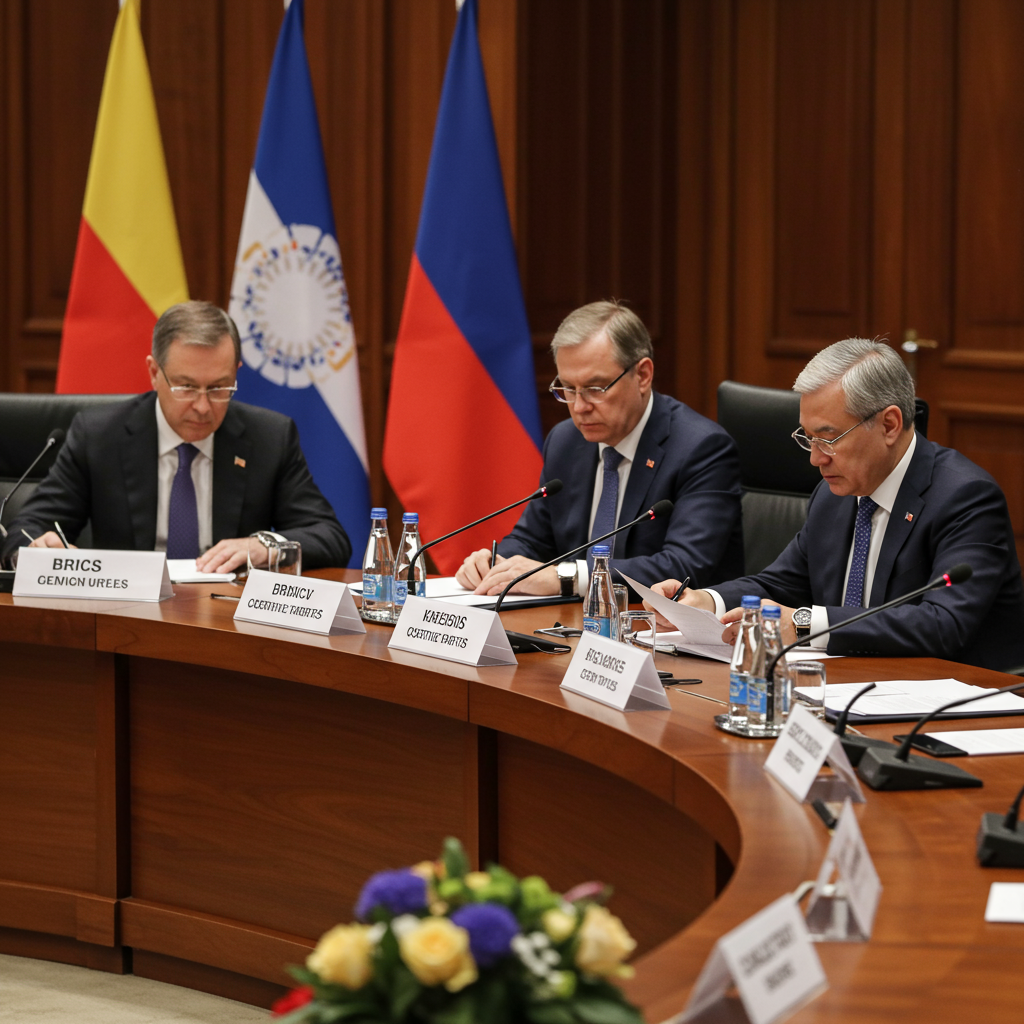The fall of el-Fasher to the Rapid Support Forces (RSF) in late October 2025 marked a devastating chapter in Sudan’s two-and-a-half-year conflict. For those who called the city home, the news solidified a chilling reality: a protracted siege had ended in a brutal takeover, leaving countless civilians trapped and desperate. This pivotal moment underscores the relentless violence and systematic humanitarian crisis unfolding in Sudan, particularly in the Darfur region.
El-Fasher’s Fall: A City Under Siege
For eighteen grueling months, el-Fasher, the capital of North Darfur state, endured an agonizing siege by the RSF. This paramilitary group, engaged in a fierce war with Sudan’s army, systematically cut off aid, attacked residents, and engineered a devastating famine. On October 27, 2025, the RSF formally announced its control, claiming the army’s last garrison, the Sixth Armoured Division. This declaration reverberated through communities already shattered by conflict, signaling an end to any remaining semblance of security.
Amidst this chaos, individuals like Mouawia, a 31-year-old civilian activist and media graduate, found their lives irrevocably altered. Mouawia had just managed to flee the city when the news broke. His voice, recounting his experiences to Al Jazeera, conveyed the profound sense of loss and fear for those left behind. “It feels like we’ve lost everything,” he lamented from the nearby town of Tawila, his thoughts consumed by the children and families still trapped. His ordeal highlights the immense human cost of this conflict and the extreme measures individuals must take for basic survival.
Civilian Resilience Amidst Devastation
The origins of el-Fasher’s collapse trace back to April 15, 2023, when war erupted, swiftly silencing the city’s once-vibrant life. Medical centers closed, streets emptied, and civilians found themselves caught between relentless bombardment and an ever-tightening siege. In this dire situation, Mouawia and a group of young residents – including doctors, engineers, and students – refused to succumb to despair. They united to reopen a local clinic in their neighborhood, demonstrating extraordinary civic courage.
Rebuilding Hope from Rubble
Their initiative, fueled solely by local donations and shared meals, quickly became a lifeline. Within a week, the clinic was operational, treating gunshot victims, pregnant women, and displaced families who appeared at their door seeking refuge and medical attention. “We worked together regardless of our beliefs or political leanings,” Mouawia emphasized, reflecting the powerful unity that emerged in the face of adversity. This grassroots effort expanded by late 2024 to include community kitchens, providing sustenance despite the constant bombings. When RSF drone strikes specifically targeted these kitchens in May, the volunteers ingeniously adapted, switching to house-to-house food deliveries. “The food we cooked for displaced families became our only meal of the day,” Mouawia shared, underscoring the deep personal sacrifices made.
The Perilous Journey Out: A “Safe Corridor” of Deception
Mouawia’s decision to leave el-Fasher in early October came after a personal injury and a stark realization: he could no longer safely continue his vital humanitarian work. Weeks earlier, a shell exploded near him while en route to his clinic, leaving him with shrapnel wounds in his stomach. With hospitals overcrowded and severely lacking resources, the shrapnel remained, a painful reminder of the conflict’s omnipresence. Unable to continue volunteering amidst intensifying daily bombardments, he sought an escape through a “safe corridor” advertised by the RSF.
He and a fellow volunteer, after formally handing their clinic to the Ministry of Health, set out with minimal belongings – a small cart, some cash, and identity papers. Their destination: Tawila, roughly 60 kilometers (37 miles) southwest. “We left quietly, praying to reach somewhere safe,” he recounted. However, the promised safe passage proved to be a cruel deception. The RSF had erected massive sand berms around el-Fasher, forcing fleeing civilians onto a circuitous northwest path, not directly towards Tawila.
Checkpoints of Cruelty and Extortion
The journey quickly devolved into a harrowing gauntlet of RSF checkpoints. Near Garni, about 16 km (10 miles) into their trek, fighters stopped them, spewing racial slurs and accusing them of being disguised soldiers. Despite showing passports and explaining their volunteer status, they endured hours of aggressive questioning. Released, they were immediately stopped again. A fighter discovered newly printed Sudanese government currency in Mouawia’s bag, snarling, “This is flangi money,” a derogatory term for army-allied fighters. The soldier then forced Mouawia to swallow a wad of bills, before stealing the rest of their cash and phones.
Further along, two RSF fighters on motorbikes again accused them of being soldiers, but finding nothing during a search, allowed them to continue to a mosque near Garni for the night. Their ordeal, however, was far from over.
Ransom Demands and the Price of Freedom
The next segment of their journey, between Garni and Jughmer, presented an even graver threat. An RSF four-by-four blocked their path. Noticing the healed scar on Mouawia’s stomach, a soldier yelled, “He’s a soldier! I told you!” Dragged from their cart, they faced interrogation and threats at gunpoint before being released, shaken but alive. Hours later, the same vehicle returned, escalating their demands to an impossible 10 billion Sudanese pounds ($3,500) as ransom. “Even if you kill me, I don’t have 10 billion,” Mouawia pleaded, desperate.
After tense arguments, the RSF fighters lowered their demand to 2.5 billion Sudanese pounds ($860). They then took the two men to an area with phone reception, threatening to kill them unless they called relatives for the money. In a moment of sheer desperation, Mouawia contacted a friend in Khartoum who managed to transfer 1 billion Sudanese pounds. Another volunteer sent 1.5 billion, completing the ransom through a Starlink RSF station located near the checkpoint. This incident chillingly revealed the RSF’s control over communication and their sophisticated extortion mechanisms, including leveraging Starlink technology. Mouawia even recounted how one fighter covertly kept a portion of the ransom for himself, whispering for Mouawia not to tell the others.
Endless Extortion: “Transport Fees” and “Ticket Money”
Even after paying the ransom, the journey to Tawila remained fraught with danger. The RSF had devised new ploys to extort money. Convoys of RSF vehicles demanded “transport fees,” often promising free rides only to demand payment – “1 million [pounds] per person [$0.50]” – once underway. At Silik camp in Korma, closer to Tawila, soldiers stopped their cart again, detaining passengers, including women and children, and demanding “ticket money” to transfer them in RSF vehicles. An elderly man who protested, stating he was already at his destination, was forced to pay regardless. Mouawia and his companion, witnessing the widespread fury, again had to secure mobile transfers from friends to pay off the fighters.
Finally, a compassionate driver agreed to take them the last leg to Tawila for 130,000 pounds ($0.04) via bank transfer. “After everything, I just thanked God we made it alive,” Mouawia softly concluded, highlighting the sheer relief of reaching relative safety.
Finding Refuge, Facing Uncertainty
In Tawila, Mouawia found a moment of rest, but the psychological toll and the future remain uncertain. The systematic targeting of civilians, the deliberate engineering of humanitarian crises through sieges, and the pervasive culture of violence and humiliation by the RSF underscore the profound challenges facing Sudan. Mouawia’s experience, from dedicated humanitarian to desperate escapee, embodies the crushing of hope for those who once fought to keep their communities alive. His initial motivations – “we kept going knowing that someone had to keep hope alive – even in a place like el-Fasher” – now clash with the harsh reality of forced displacement and ongoing regional instability.
The international community must acknowledge the systematic brutality described by Mouawia and countless others. The control of communication lines, the use of racial slurs, the forced ingestion of currency, and the brazen extortion schemes paint a clear picture of calculated oppression. Without concerted efforts to address the root causes of the conflict and protect civilians, the harrowing tales from el-Fasher will only multiply across Sudan.
Frequently Asked Questions
What led to the fall of el-Fasher and how did it impact civilians?
El-Fasher, the capital of North Darfur, fell to the Rapid Support Forces (RSF) on October 27, 2025, after an 18-month siege. During this period, the RSF blocked aid, attacked residents, and deliberately created a famine. The takeover intensified the humanitarian crisis, trapping countless civilians and forcing others to undertake perilous journeys to escape. It marked a significant loss for the Sudanese army and a devastating blow to the city’s inhabitants, who faced relentless violence, extortion, and a collapse of essential services.
What were the primary dangers civilians faced when attempting to escape el-Fasher?
Civilians attempting to escape el-Fasher, even through RSF-advertised “safe corridors,” faced severe dangers. Mouawia’s journey illustrated these threats: RSF checkpoints subjected escapees to racial slurs, accusations of being disguised soldiers, hours of interrogation, and physical violence. Fighters routinely stole cash and phones. A particularly harrowing danger was the demand for exorbitant ransoms, backed by threats of death, forcing families to desperately seek funds. Beyond this, RSF convoys extorted “transport fees” and “ticket money” from vulnerable travelers, making every step a financial and physical risk.
What was the humanitarian situation like in el-Fasher before its fall, and how did locals respond?
Before its fall, el-Fasher faced a dire humanitarian situation following the outbreak of war on April 15, 2023. Medical centers closed, aid was blocked, and civilians were trapped. In response, local residents, including Mouawia, a media graduate, alongside doctors, engineers, and students, displayed remarkable resilience. They reopened a clinic, sustained by local donations, treating the wounded and providing care. This initiative expanded to community kitchens, which continued to operate even under drone strikes, adapting to house-to-house deliveries to ensure food reached displaced families. These civilian-led efforts provided a critical lifeline and maintained a fragile sense of hope amidst overwhelming devastation.


